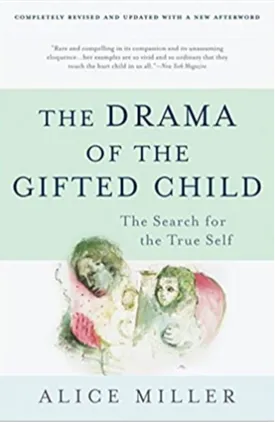The Drama of the Gifted Child by Alice Miller
Alice Miller’s 1980 book The Drama of the Gifted Child is a powerful and sometimes controversial examination of the psychology of childhood, and its lasting effects on adults. In this work, Miller argues that many of the key features of adulthood — aggression, depression, low self-esteem, and narcissism — can be traced back to early childhood experiences, especially those of the gifted child.
The central argument of The Drama of the Gifted Child is that children can suffer from powerful negative emotions but are often unable to express them because of cultural expectations and family dynamics. As a result, these suppressed feelings become present in adulthood, often without the person being aware of them. Miller posits that how a child is treated early in life has long-lasting psychological effects that can actively shape how an adult behaves.
The book is divided into three sections, each of which is devoted to a different aspect of the gifted child’s psychology. The first part, "The Influence of Early Experiences," examines how family relationships and upbringing can influence the psychological development of the child. Miller argues that children can feel "invisible" and unloved, leading to a range of psychological and relational difficulties when they reach adulthood.
The second part, "The Consequences of Silence," delves deeper into Miller’s central thesis. She argues that children can often feel invalidated by mistrustful, authoritative, or neglectful parents, leading to unhealthy patterns of behavior in adulthood such as depression, aggression, and narcissism. The third part of the book, "The Capacity to Cope," focuses on how adults can re-frame their childhood experiences, and break the cycle of trauma to lead healthier lives.
The Drama of the Gifted Child is an eye-opening work of psychology, offering powerful insights into how childhood experiences can influence adult behaviors. Miller’s arguments are controversial, with detractors claiming her views are overly simplistic and even damaging. Nevertheless, her book remains highly popular, and is viewed by many as a key work in helping to understand the lasting effects of childhood trauma.

